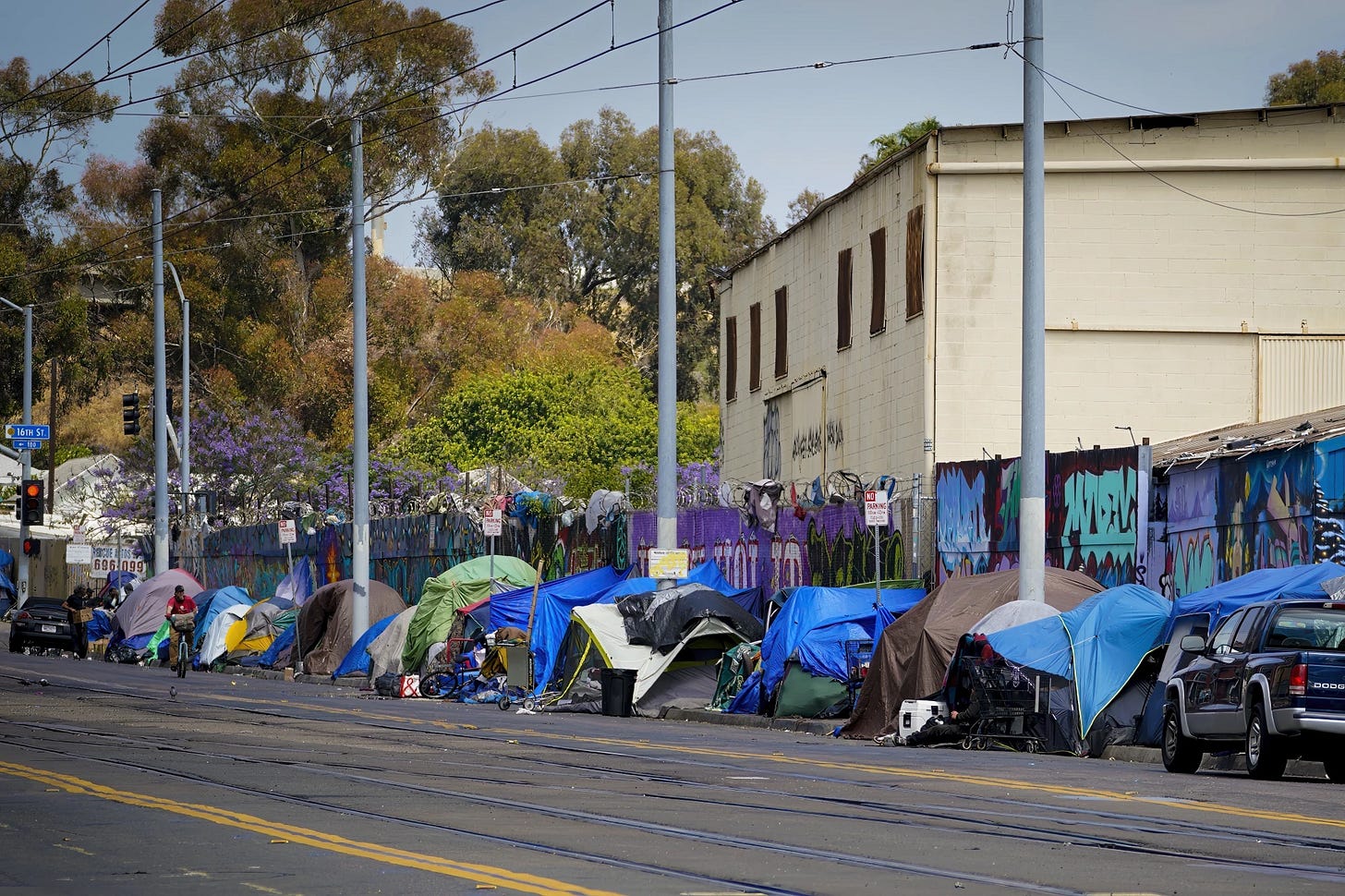Low income housing, Hangzhou, China
There’s been some discourse lately on homelessness and the absence of it in Beijing and, since there’s little data on it, I decided to find some evidence myself. After all, if China’s system really is like America’s, a big city should be ground zero for the neoliberal hell of rough sleeping.
Moreover, as a developed, high-income country commanding the most financial resources of any other in the world, the U.S. should be uniquely situated to solve or at least mitigate homelessness in its cities. China is likely at a disadvantage, still being poorer per capita.
Proportionally, however, using one of the only estimates of homelessness in Beijing available online (cited by this article published in the Economist in 2019), Portland’s problem was about one hundred times worse.
In fact, you’d expect the problem to be FAR worse there than in a much smaller city, like, say, Portland, Oregon (<1 million).
The Economist claimed that central Beijing had a homeless population of “several hundred”. I won’t dispute the (often dubious) reliability of the Economist here. I just wanted to see if, in 2024, any of the hundreds could be found.
I’m certainly not the most qualified to go on the ground and do this, but as a Portlander, I do know a little of what to look for, can compare the two experiences, and perhaps give a useful perspective on how things seem to be going.
So, I spent a few days exploring central Beijing, as systematically as I could, trying to find anyone sleeping in public, living in a tent or vehicle, or otherwise clearly down and out. These are all common in Portland. You’ll find them every few blocks in the inner east side.
I’m sure my detractors will say I was looking in the wrong place if I want to find homeless people in China, and I have no doubt that they’re correct. But the Economist said central Beijing, and Dongcheng (where I primarily searched) is as central as you can get. Dongcheng isn’t quite a downtown, but in Portland, you’ll find signs of homelessness throughout the most central and downtown areas, for example near the bus and train station, as well as the surrounding neighborhoods, so it seemed a reasonable choice.
My cousin, who grew up in the United States, visits China every few years to see her family. Given how serious of a problem homelessness has become in the United States, I'm always intrigued when she points out how few vagrants and beggars there are in China's big cities
Low income housing, Los Angeles, CA.
To answer her questions, I looked up Chinese legislation on assisting urban vagrants and beggars and discovered some interesting results:
Prior to 2003, the administrative procedure for dealing with urban vagrants and beggars in China was known as the “custody and repatriation system”, under which city police could detain people who did not have a residence permit or temporary living permit and return them to a place where they could legally live or work. The public viewed the system as uncaring and inhumane, especially against poor people who had made their way to the city from the countryside. The system was abolished in 2003, and it was replaced by new Regulations On Assisting And Managing Vagrants And Beggars in Urban Areas.
Local governments above the county level are tasked with establishing shelters for the homeless, and the cost of doing so must be factored into the government's annual financial budget. Non-governmental organizations and private businesses are encouraged to pitch in to aid urban vagrants and beggars. Unlike the previous “custody and repatriation system”, urban vagrants and beggars should not be coerced into staying in shelters, and they should be free to leave at any moment. The homeless shelter shall not refuse to assist urban vagrants and baggers.
Personal property of the homeless shall be protected, and social workers at homeless shelters shall not abuse the homeless or demand payment from them in any way. The shelter must provide transportation for individuals who cannot afford a ticket home. Local governments should regularly dispatch inspection teams to locate homeless people and provide them help. For individuals who have family, the shelter is responsible for contacting and returning them home. Those who have no relatives and are unable to support themselves will be referred to welfare institutions by the local government. Female homeless people must be taken care of by female staff members, and the apartments provided to urban vagrants and baggers will be divided into separate rooms depending on gender. People with disabilities, the elderly, and children shall receive extra attention.
I believe there are three other reasons why there are significantly fewer homeless people in China than in the United States, in addition to the effective procedures that help urban vagrants and beggars.
The Chinese government takes the use of illegal drugs very seriously. Unlike in the United States, where many homeless persons are drug addicts, the homeless Chinese are mostly destitute or mentally ill.
Poverty alleviation is one of the most important duties of the Chinese government. The majority of urban vagrants and beggars are destitute rural residents looking for work in the city. When such homeless people are discovered, the local government where they are from will be contacted. Money will be given to those who qualify for government aid. The local government will host job fairs to assist homeless people who are actively seeking employment. As a result of China's recent rural reforms, the country's rural areas have become increasingly prosperous, and fewer people are now leaving for big cities.
Those who don't work and depend on others are looked down upon in Chinese culture. If given the opportunity to work, most Chinese people would rather not live on the streets or beg.
China has made considerable strides in recent years to assist homeless people and beggars in urban areas, but much more needs to be done. Children who have been left behind, jobless rural residents, and the elderly are vulnerable groups that require more attention from the government






